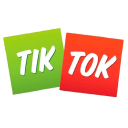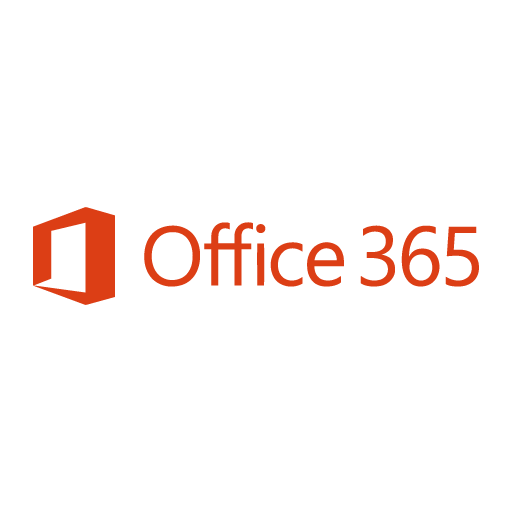I Created A $45K/Month Female-Led Cannabis Brand
Hello! Who are you and what business did you start?
Hello Adventurers! My name is Holly Hillyer, founder of Utokia, a cannabis cultivation company I launched back in 2016. I'm one of the few female growers in the cannabis space, and I'm proud to produce some of the best indoor flowers in the nation. This flower goes into top-shelf buds and our Adventure pre-roll variety packs sold across Oregon retailers.
In 2024, I also launched Utokia Herb Co., where we sell hemp-derived farm bill compliant products that can be sold across the country.
Utokia is making roughly $30,000 a month and Utokia Herb Co which as of this writing is only about 2 months old is already making about $15,000 a month in revenue.

What's your backstory and how did you come up with the idea?
My cannabis journey began after I broke my wrist falling off my horse. The resulting severe pain led me to relying heavily on opioids. Getting off these painkillers was a difficult battle, and doctors only offered more prescriptions. This led me down a scary path I was fortunate to escape from once I discovered cannabis.

My parents, longtime cannabis growers, made me edibles to help manage my pain and withdrawal symptoms. It was then I learned they had experience growing cannabis in Oregon, just as recreational cannabis sales were legalized. This fortunate timing, coupled with my desire to escape the rat race and build a company I was passionate about, led me to cannabis.
At the time, I had a good office job as a project manager. I'd always loved gardening and grew up on a farm, so the opportunity to cultivate cannabis was exciting. We considered other ideas like rental properties and nut butters, but landed on Utokia as the next chapter.
With no experience in cannabis or running a business, I started experimenting with a grow tent in my spare bedroom before searching for a small property to cultivate. Contrary to popular belief, growing cannabis well is very difficult, and the industry is fiercely competitive with high barriers to entry. Despite these challenges, we've maintained prices that are over 50% higher than 90% of the market.
We knew there was demand, but had no idea how to sell. I'd never even walked into a dispensary before selling to one. For the first couple years, I kept my office job, leading a secret double life.
Don't rely on one source or ad. You never know what will take off, so it's crucial to spread your message across various channels while staying budget-conscious to avoid wasting resources.
Take us through the process of building the first version of your product.
I bootstrapped everything. From growing the plants to marketing and sales, I wore (and still wear) most of the hats. We started the company with about $25,000 from selling our house and reinvested profits over time into automation and better equipment.
Initially, I started with plants in large pots on the ground, gradually learning to scale and grow more efficiently for larger production. There were many iterations of irrigation systems, plant tables, lighting, and equipment to get where I'm at today. Sometimes, money was spent on equipment only to find a better solution a year later, leading to the frustrating decision to scrap things and start over. However, this is part of any business trying to grow and scale.

When I first started during the medical marijuana era, growing and selling with a medical card was easier, without all the regulations around seed-to-sale tracking and cameras. Balancing growing and selling alongside my day job was manageable.
The transition to recreational cannabis brought new challenges. Navigating 100+ pages of ever-changing rules, installing surveillance equipment, acquiring water rights, land-use permits, and acoustic engineer sign offs became necessary. By researching and navigating these requirements ourselves, we saved a lot of money.
The hemp side was more complicated than I anticipated. Originally, I envisioned it as a duplicate of our current website and branding, just with different product lines. However, designing an e-commerce website was a whole new adventure.
Over three months, I learned e-commerce principles, product photography, copywriting, and the psychology of pricing and offers. While doing all this myself saved a ton, I also made a costly mistake with a "mastermind" course that under delivered. I craved a mentor but found these courses generally overpromise and target people selling courses or services, not someone like me in a specific niche like e-commerce. Instead, I focused on networking and found a few mentors, relying on trial and error to learn.
We initially wanted to just launch our hemp packs, but weren't confident the hemp pre-roll market was strong enough. Additionally, advertising smokable products is difficult. So, we pivoted and explored adding products to our lineup that would attract customers.
I wanted to do catnip joints, having seen one competitor offering them outside the cannabis space. This, I thought, would give me an edge. I also craved an edible that felt less intimidating for people to try. We spent a couple of months taste testing and trialing a lot of different options before landing on the gummies in our lineup.
While a cheaper route with lower-quality ingredients was an option, we've always believed in offering exceptional products to retain customers.
I'm so glad we chose gummies because they're by far our best sellers right now. Sometimes, even though you're invested in something (our packs were our flagship product on the cannabis side), you have to go with what the market wants.



Describe the process of launching the business.
For the farm side, the launch essentially happened when I had my first crop grown. Excited, I reached out to some connections through my parents to sell to.
After a break and switching to a recreational license, I grew my next crop, confident I could get top dollar for the beautiful flower I'd produced. However, I wasn't aware of a recent market crash.
Without enough connections to stay informed, the offer I received was about half of what I'd gotten just months prior. It was a tearful moment, questioning everything, but I'd just invested more money and quit my job, so giving up wasn't an option.
On the e-commerce side, I launched the website with nervous anticipation, waiting for everyone to discover us. The initial response was crickets, aside from a few orders from friends and family. SEO and blogging research revealed a much more difficult and competitive landscape compared to a decade ago.
Social media became the next frontier, with a few posts and attempts to find influencers or people interested in gummies and cannabis. Most messages went unanswered, but a few sent addresses for sample shipments.
I decided to run a Facebook ad for our catnip joints. The next morning, I woke up to website traffic and a few orders! However, it wasn't the ad that brought them in. Someone I'd sent gummies to had posted a video on TikTok, and everyone wanted to know where to find them! Although I hadn't prepared for a surge in website visitors, I spent the next two weeks straight making improvements, responding to comments, shipping orders, and creating content.
This experience taught me the importance of "planting many seeds." Don't rely on one source or ad. You never know what will take off, so it's crucial to spread your message across various channels while staying budget-conscious to avoid wasting resources.
The e-commerce business was financed through profits from our licensed farm. Avoiding debt and investors meant saving every penny and reinvesting it in the business.
Since launch, what has worked to attract and retain customers?
On the farm side, things haven't become easier, although I've honed the growing process, built relationships, and established brand presence. It's still a lot of legwork, showing every crop directly to potential buyers. Consolidation in the industry, with dispensaries being bought out, means losing some accounts that prioritize cheap products over working with small businesses. However, new opportunities arise.
With a limited number of retailers in the state, maintaining a good reputation and strong partnerships is critical. Social media advertising is restricted for cannabis businesses, but we use stories and pictures to connect with our existing customer base. Vendor days and promotional deals with dispensary partners are additional strategies.
We rebranded completely a few years in with a fresh logo and these collectible cards that combine our love for fantasy, gaming and cannabis. We figured, why not go all in on a crazy brand idea that we love and maybe others will love it too! That was the best decision we ever made and put our name on the map as a recognizable brand.
Soon, everyone knew who Utokia was even if they had never carried our product. We were “the ones with the cool cards.” People started to collect and send us pictures of their collection. It inspired us to do quests and differentiate the brand in this sea of green.

On the e-commerce side, we're still in the early stages, but the high quality of our product is paying off. We've seen reorders as quickly as the next day after a package is received. Responding promptly to every comment, email, and question is another key factor in keeping customers happy.
We're currently working on getting onto gift guides, running ads for our catnip and gummies, writing blogs, and compiling a list of relevant events to attend. Perfectionism can hinder progress, so I've learned to put content out there, iterate, and improve gradually.
Similarly, I've had to prioritize sleep over staying up all night to get everything done. Building a business is a marathon, not a sprint. It's crucial to seize opportunities as they arise, knowing they might not last forever. For example, the TikTok traffic surge only lasted about two weeks before dipping significantly.
Offering free shipping for April as a 4/20 special was a scary expense, but we committed and followed through. Following through on commitments, even if they turn out to be mistakes, is important. Knowing your margins and calculating all costs down to the penny is essential for healthy profit margins.
Every business has its pros and cons, and there's always the potential for both success and failure in any industry. The key is to find your unique skill or idea, the thing that makes you stand out from the crowd.
How are you doing today and what does the future look like?
The farm side is growing steadily. We're expanding our offerings to include new strains tailored to specific needs, catering to a more discerning customer base. We sell 200 lbs of flower per year with an average price point of $1600-1800/lb.
Our pre-roll packs are very limited and we typically sell out when we release them with each crop. We produce roughly 40 cases of 40 packs around 4 times a year. The market fluctuates year-to-year, but we have been able to maintain a good price point (much higher than average) because of the brand that we’ve built, the relationships we’ve fostered and the consistent quality.
Our grow room has evolved and I build brand new rolling benches and switched to LED lights:

Despite challenges in the farm-to-dispensary market, Utokia has a loyal following and continues to win awards for exceptional quality. We were named one of "Oregon's Best Farms" from Willamette Week’s Portland Best and have been featured in several publications, solidifying our reputation as a top grower. We plan to stay small and boutique with our cultivation in Oregon. It’s too easy to expand and lose the quality and expanding also means that you generally have to lower your prices to meet the supply and demand curve, especially since the market is flooded with flowers. We would rather have a small slice of the pie and stay a small craft farm.
The e-commerce side is exciting! Sales are growing every month, and we're expanding our product line to include additional hemp-derived CBD products. Building a brand online is a long-term strategy, but the positive customer response and repeat business keep us motivated. This last month, we’ve sold around 550 gummy packages, with gummies as our top seller.
Overall, Utokia is thriving. We're a small but mighty company with a focus on quality and innovation. Looking ahead, we plan to continue to expand our e-commerce reach, focusing on content marketing and influencer partnerships.
Through starting the business, have you learned anything particularly helpful or advantageous?
Absolutely! Here are a few key takeaways:
- Be adaptable and embrace change. The cannabis industry, like many others, is constantly evolving. Be ready to pivot strategies and products as needed.
- Don't be afraid to experiment. Test new ideas on a small scale before going all-in. Learn from your mistakes and iterate quickly.
- Customer service is paramount. Respond promptly to inquiries and go the extra mile to keep your customers happy. They are your best form of advertising.
- Build relationships. Networking is crucial in any business. Connect with people in your industry and build mutually beneficial partnerships.
- Don't give up! Building a successful business takes time and hard work. Stay focused on your goals and celebrate your milestones.
What platform/tools do you use for your business?
- Wix for our websites and email marketing
- Valmar for payment processor
- usps for shipping (with shippo integration)
- Notion for organizing notes
- Canva, & Adobe full suite for graphics
- ChatGPT for brainstorming
- Discord for community building
- google for meetings and calendar
- microsoft office for my emails and onedrive
What have been the most influential books, podcasts, or other resources?
I am a big fan of Alex Hormzi for business advice and Gary Vee for inspiration. When I need to learn something new, I turn to TikTok and Youtube for tutorials on anything from running ads and creating content to graphic design. For mental wellbeing, the Hidden Brain podcast is a great listen.
Advice for other entrepreneurs who want to get started or are just starting out?
It's easy to get stuck in analysis paralysis, especially when you're investing your hard-earned savings. But remember, every business has its pros and cons, and there's always the potential for both success and failure in any industry.
The key is to find your unique skill or idea, the thing that makes you stand out from the crowd. Building a strong brand is crucial because if you have a good idea, someone will eventually try to copy it. So you need to be first to market, better than the rest, or willing to outwork your competition.
Finding something you're passionate about is essential. Because let's be honest, there will be times when you just want to quit, even if you love it. But if you truly love what you do, it will help you persevere through the tough times.

Finally, invest your own time and money. When you have skin in the game, you'll take things more seriously and be less likely to let the business fail. It's a different mentality than using someone else's money.
Are you looking to hire for certain positions right now?
- Artists: These artists would likely create designs for the cards mentioned in the interview, possibly product packaging or other marketing materials.
- Graphic Designers: Their focus would be on polishing existing designs for ads, likely both online and in print.
- Packaging Designers: These designers would take the lead on creating eye-catching packaging that follows strong design principles.
- Social Media Wizards: Utokia Herb Co. seeks individuals who are passionate about creating engaging and fun content for their social media platforms.
Where can we go to learn more?

Download the report and join our email newsletter packed with business ideas and money-making opportunities, backed by real-life case studies.

Download the report and join our email newsletter packed with business ideas and money-making opportunities, backed by real-life case studies.

Download the report and join our email newsletter packed with business ideas and money-making opportunities, backed by real-life case studies.

Download the report and join our email newsletter packed with business ideas and money-making opportunities, backed by real-life case studies.

Download the report and join our email newsletter packed with business ideas and money-making opportunities, backed by real-life case studies.

Download the report and join our email newsletter packed with business ideas and money-making opportunities, backed by real-life case studies.

Download the report and join our email newsletter packed with business ideas and money-making opportunities, backed by real-life case studies.

Download the report and join our email newsletter packed with business ideas and money-making opportunities, backed by real-life case studies.





























